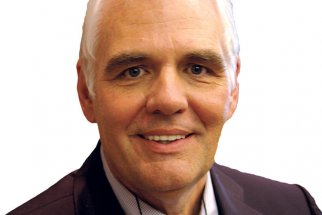
John B. Kostoff
Faith and science work side by side
Catholic schools have long been recognized for their strong programs in social science, language and arts, and, at many schools, physical education. But often the success of these programs has come at the expense of the science curriculum, according to some.
Building Catholic education through the domestic Church
The strength of Catholic education is founded on an alliance between families, parishes and schools which work together towards a shared objective. Together they comprise the domestic church.
Unique program connects Canadian Church, schools
Pre-Vatican II babies remember it as if it were yesterday: Who made you? God made me? Why did God make you? To love Him in this world and to serve Him and be with Him in the next world.
You only have to look at the role technology plays in our lives, particularly in the lives of young people, to recognize that we are in an age of instant response and gratification. It is an age of limited analysis where consumerism runs rampant and opinion masquerades as fact.
Sometimes the court gets it right on religious rights
It’s interesting how often the media picks up on bad news about religion — in particular, news about Catholic schools — and judiciously avoids some of the positive news from around the country.
We’ll find hand of God in sex ed curriculum
The release last month of the Ontario government’s revised physical education and health curriculum is an opportunity for Catholic schools to again demonstrate an approach that is both distinctive from but supportive of secular goals.
School chaplaincy engages students in the faith
The role of chaplaincy in Catholic education has a long history. When Catholic high schools were founded, by religious orders, it was often with great sacrifice that a community would identify a chaplain who had theological training, often a priest or professed religious. Those early communities understood the value of chaplaincy.
Why Catholic education still matters
One benefit of having a large Catholic university like the University of Notre Dame is that it can allocate resources to support the Catholic community and Catholic education in a variety of ways. One such way is a program called ACE RISE, run by Fr. Ronald Nuzzi, PhD.
Open season on Catholic education
In his new book The Global War on Christians, John L. Allen Jr. follows in the path of Phillip Jenkins’ book, The New Anti-Catholicism, in highlighting growing anti-Catholicism in our society.
A Catholic education is a unique education
Recently I had the opportunity to meet with some parents who were looking at enrolling their children in a Catholic school. They made that decision because of their own experiences of Catholic education, but also because of their participation in a program run by a number of our school boards called “We’ve Been Waiting For You.”

